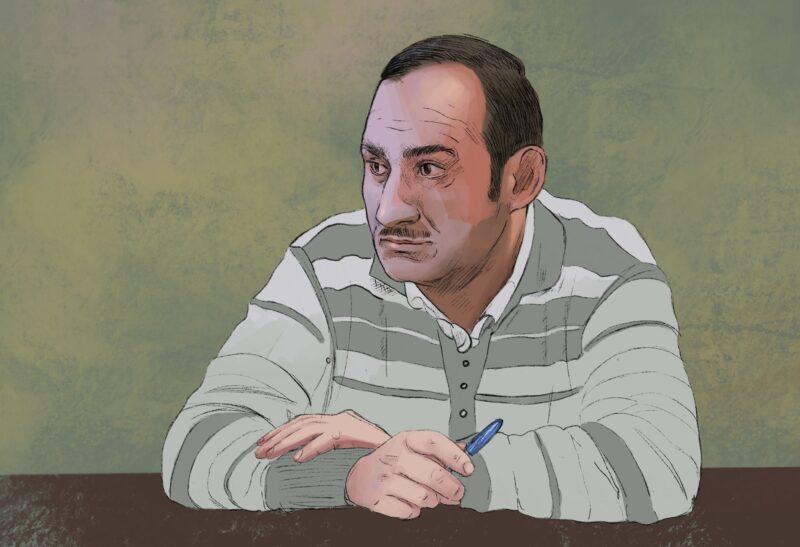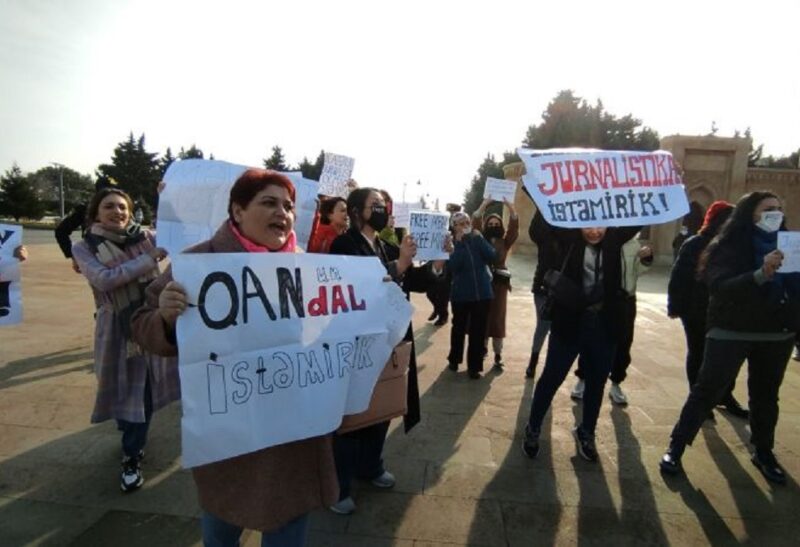

What got me thinking the most in prison were the relationships between inmates. During my time there, I realised that people in jail are kinder and more tolerant towards one another than they would be outside. Those who could easily cut each other’s throats over a misspoken word outside prison walls learn to listen to each other on the inside.
Let me give you an example from my own experience. I spent the first seven months of my sentence with eight people in a cell intended for six. At times, it held nine inmates plus me. Upon my request, the number was reduced to six a few months later; then seven months after that I was moved to a two person cell, again at my request.
When I lived in the big cell, my fellow inmates happened to discover that I was an atheist. Some of them had never even seen an atheist before. At first they treated me like I was something unfamiliar, unknown to them, but later they got used to it.
We had many arguments about this, but certain lines were never crossed. There were times when I was the only one of the six inmates in the cell who didn’t pray daily. My cellmates were not intellectually or culturally sophisticated. If they had been, there would have been nothing to talk about because I used to have those kinds of friends before I went to jail. If I had met my cellmates outside prison, told them I was an atheist and argued with them about it, some very bad things could have happened. I don’t think I would even have been able to be in the same room with them outside prison. But in prison the worst that could happen was an argument. The rest of the time we were generally very kind to each other. We ate together, watched TV, played games and spent a lot of time talking.
One of my cellmates even stopped doing his daily prayers after several discussions, although not because I was encouraging him to abandon his faith. It was simply because he realised he had been fooling himself with his daily prayer routines, and had been influenced by religious extremists in prison. I’d like to mention here that before being picked on by my religious friends, I actually suggested to one of my former cellmates – a drug-addict – that he should start praying. Back then I thought it was probably the only way out for him. He didn’t listen to me, and judging by few encounters I had with him subsequently, he probably should have done.
As a side note, during my military service I was beaten up purely for being an atheist, which never happened in jail.
When I was in prison I tried to understand the reasons behind these relationships between inmates. At first I thought it was because of the “criminal code” but later I realized that it wasn’t that. The “criminal code” is a serious issue in prisons, but not the most important one, especially since the introduction of the Penitentiary Service’s new policy to clamp down on criminal activity in prisons. This has significantly reduced the influence of criminal elements. Furthermore, the rules of the “criminal world” are often very easy to bypass.
Another issue is fear of the prison administration (a.k.a “shoulder straps”). This is a contributing factor too, but as we all know, it is also one of the things that can easily be circumvented in Azerbaijan. Regarding other issues, inmates usually don’t have a problem with opposing the “shoulder straps” and being beaten up and thrown into the isolation ward. So what makes people in prison display more kindness towards one another, compared to people outside?
I think the reason is that people in jail don’t have another option. You always have different choices when you are free because you can move to a different environment. In prison, however, especially in closed prisons, you don’t have that option. You have to be kind even to the people you hate and who are your complete opposite in every respect. It is very hard to live together with someone 24 hours a day, but most of the people do this instinctively, without thinking. Those who don’t tend to have a very hard time in prison.
People who wouldn’t even say “hi” to each other or be in the same room outside prison can become “brothers” after spending some time together in prison. However, this is not the result of their gradual influence over one another. With a few exceptions, people rarely change their views or personalities.
They just learn to live together.
19.11.2014 Kurdekhany. BPDF



